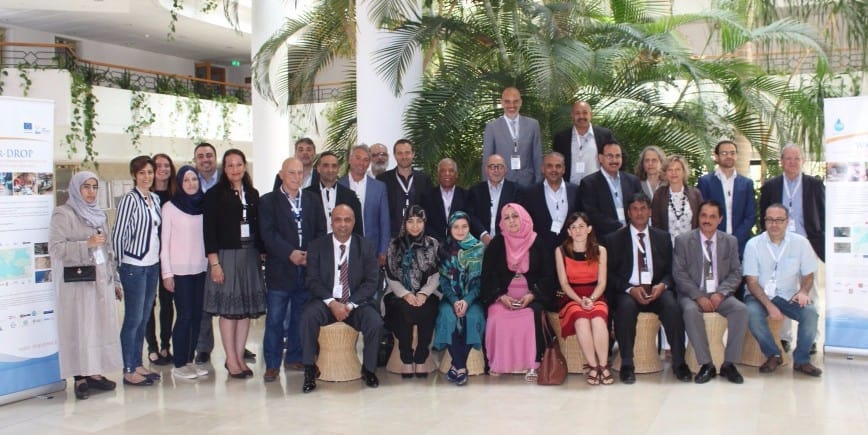
Mediterranean and International Conferences Successfully Organised within the Framework of the European Union Funded Project ‘Water-DROP’
The University of Nicosia successfully hosted the Mediterranean and International conferences organised within the framework of the European Union funded project entitled ‘Water Development Resources: Opportunity Policies for the Water Management in Semi-Arid Areas’ (Acronym: Water-DROP). The two conferences took place on 30 and 31 May 2016 in Paphos, Cyprus and were attended by over forty local and international participants.
The Water-DROP project, funded by the European Union within the framework of the ENPI CBC Mediterranean Sea Basin Programme, is coordinated by ENEA and includes nine partners from Italy, Cyprus, Spain, Lebanon, Palestine and Jordan. The main objective of Water-DROP is to develop an integrated water cycle management approach at the Mediterranean Sea Basin level for managing the related cross-sector issues through the enforcement of multi-stakeholder partnerships, in particular with public and private actors.
During his opening address, local project coordinator Dr. Marios Valiantis, Director of the Centre for Green Development and Energy Policy of the University of Nicosia stressed the importance of the development of effective water management policies in the Mediterranean area and expressed his gratitude for the excellent collaboration among the partners of the project.
Population growth, rapid urbanisation and industrialization, the expansion of agriculture and tourism, as well as climate change, are all factors that put water under increasing stress. The scarcity of this vital resource for human and social development has placed water at the top of the agenda of many Mediterranean countries. Most of the water problems are due to the mismanagement of water resources and to the incoherency among different policies impacting water conservation. In addition, the dialogue between water stakeholders, users and central governments should be fostered in order to ensure more integrated approaches to developing and managing water resources. To address these challenges, the Water-DROP project was designed on the assumption that the main issues to be tackled for efficient water management concern technical-methodological, capacity-building, and normative aspects.
The project outcomes included the development of a Decision Support System integrated by a Geographical Information System (DSS-GIS) for the water cycle management adopted and implemented in the four target areas; normative proposals on water management developed leading to the progressive harmonization of the legislation on the issue at Mediterranean level; and, better Water Cycle Management achieved in the target areas including reused water in Palestine, economically improved management of the Italian “Torre Flavia” area (Rome), more efficient water use in three Jordan communities of the Al-Balqa governorate and reduction of water pollution risk in selected Lebanese rivers and sea-related areas.
The main activities organised within the lifecycle of the project included the elaboration of a database on the water cycle management; training courses for technicians of the water sector; awareness-raising activities dedicated to teachers and schools; the organisation of national roundtables and drafting of road maps for transferring the results to concerned stakeholders; and, setting up a Mediterranean Task Force for the water management normative harmonization. Target groups included national and local authorities responsible for water cycle management; public and private scientific institutions; local and national environmental NGOs; water management local stakeholders; and, communities of the target areas.
The 24-month project has a total budget of €1.9 million (90% of which is contributed by the EU).
For more information visit: www.water-drop.enea.it
The 2007-2013 ENPI CBC Mediterranean Sea Basin Programme is a multilateral Cross-Border Cooperation initiative funded by the European Neighbourhood and Partnership Instrument (ENPI). The Programme objective is to promote the sustainable and harmonious cooperation process at the Mediterranean Basin level by dealing with the common challenges and enhancing its endogenous potential. It finances cooperation projects as a contribution to the economic, social, environmental and cultural development of the Mediterranean region.
